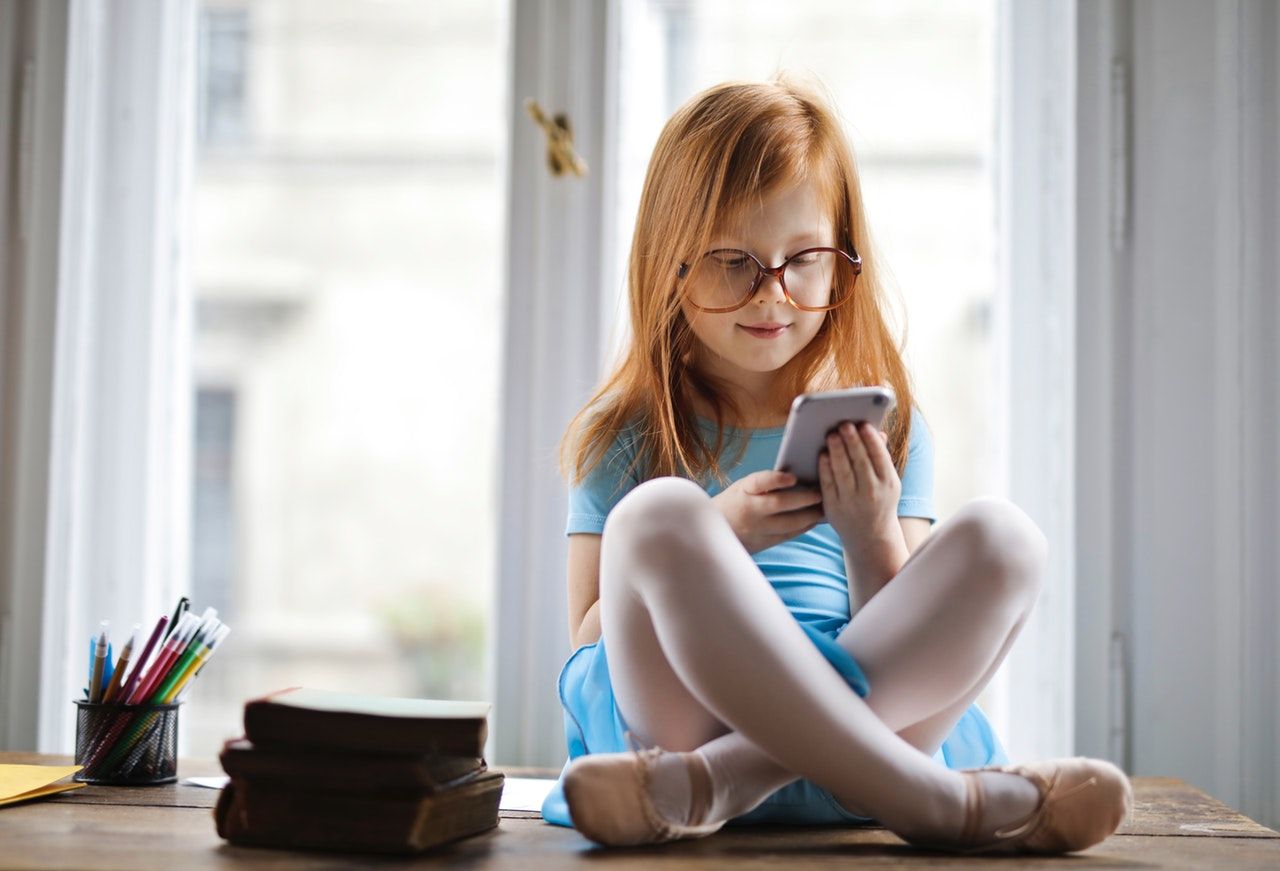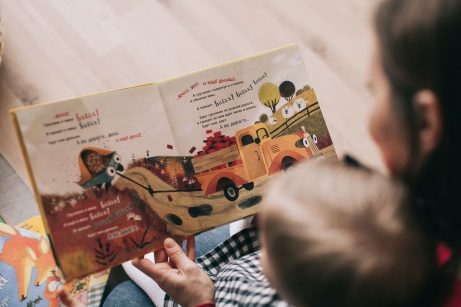Montessori Parenting in the 21st Century – Part 2

Montessori education first flourished more than a century ago. What is different now and then, and what are the most common obstacles Montessori parents run into?
You can find Part 1 here.
Children today are living very different lives from those of a hundred years ago. The fundamentals of how we live and grow – from the basic human tendencies to the timeline of human development – have not changed at all, yet our childhoods have transformed in astonishing ways, and so must our parenting.
Dr. Montessori, throughout her long and often difficult life, saw and addressed many obstacles facing parents and children. Indeed some of them are sadly universal – lack of knowledge, resources, even nourishment or basic safety and security. But those aside, she could have hardly expected some of our modern challenges.
There are some misconceptions about what stands between parents and a Montessori approach. It is rarely money, as Montessori is not in its nature any more expensive than any other form of child rearing, and in fact cheaper than many others; it is also flexible and adaptable to various cultures and religious beliefs. What I see Montessori parents struggle with most often are the following.
Social and Family Pressures
Montessori has been going through a steady renewal over the past decades, and is spreading rapidly – still, it is far from mainstream, and few of the parents utilizing it have been raised in the same way. As such, our principles, beliefs and habits are often at odds with those of the child’s extended family (especially grandparents!), peers, neighbours and society.
Sometimes it takes nerves of steel to not buckle under the judgement, bewilderment or even scorn and ridicule of those who question the way we raise children – whether it’s the floor bed or the glass dishes, our acceptance of “rude and willful” children or our refusal to “help the child” by doing things for them.
Our most common advice to parents struggling with lack of acceptance are to clean expectations and make compromises ahead of time (for example, the grandparents promise to respect your rules when in your home, and in turn receive no interference when their grandchild is with them); prepare some gentle yet firm responses to common comments or questions you might get; and most importantly, seek out a group of like minded parents for those days when you question whether the world is going mad or whether it’s just you. In person or even just online, a support system is everything.
Balancing Freedom and Safety
Whilst there has always been a balance to be found between independence and protection, freedom and safety, that balance seems to have shifted in a massive way in the last few decades. Perhaps, like me, you remember spending long childhood days by yourself – getting pushed out of the house with a vague direction of “go play” and not being expected back until dinner. Perhaps, like me, you now live in a community when doing so to your own child would result in a visit from Child Protective Services (if not worse).
Our worlds have grown and shrunk at the same time, and the expectation is now often that parents will supervise every moment of their child’s days, control the child’s environment to provide for only the best outcomes, clear the way for every success. The problem is that childhood is a time of exploration, discovery, and learning – one that must also allow for mistakes, missteps, and failures.
“Helicopter parenting” is a well-known and oft derided phenomenon. You can read about parents who show up to their child’s job interviews or come to argue grades with their college professors. A Montessori approach demands we let go a whole lot earlier than that. It means letting a barely mobile infant struggle to get a ball rather than handing it to them. It means letting a two-year-old play without the parent’s interference or, at times, supervision. It means teaching a preschooler the manners to speak with a stranger on the street (in a shop, in the post office) by themselves, and letting the school-age child venture into the world by themselves, altogether.

Explore the fundamentals of Montessori parenting with this free video by Sylvia Arotin, offering insights and strategies to empower and educate your child.
Virtual Worlds
The march of technological progress over the past century has been nothing short of astonishing, and likewise its impact on our daily lives. The amount of time we spend interacting with modern technology is staggering, and its effects on the way we think, process and experience the world are still poorly understood.
But we have some answers as to how living in digital worlds affects the growing minds of children. Crucial cognitive skills and abilities, in particular self-regulation, focused attention and emotional stability are all known to decrease with increased screen time; fine motor skills suffer, and so does emotional and interpersonal intelligence; there may even be a direct link to anxiety and depression in children.
Some parents worry about missed opportunities if they don’t let their child interact with screens, phones, tablets and computers. Naturally, they wish to give their children a head start in our technology-focused world. Although well meant, this approach is woefully misled. The real missed opportunities of our children are still all in the real world.
Dr. Montessori didn’t study the effects of digital technology on children, of course. But she did tell us what was crucial to their development: real, hands-on experiences in the environment; the company of guides and peers with whom to communicate, cooperate, solve conflicts or just share company; abundance of beauty and nature, and lots and lots of movement. Until digital technology learns to give children all of that in meaningful ways, it is only wasting their time.
So what to do as parents in this always plugged-in world? It is going to be difficult to unplug your child, but so very worth it. From the start, resist the temptation of “educational” programming for babies and infants; explore “busy bags” and small take-along toys instead of the “soothing” influence of a phone or tablet. Limit screen exposure as much as possible, and maximize time spent wholly out of their reach – ideally, outside. If your children are going to watch tv, make it a family activity: something you do together, in small doses, without it becoming a background and without disturbing content going unnoticed or unaddressed. It might be impossible to avoid all digital media – in many places, you can’t walk down the street without seeing four different screens clamoring for your attention, most likely to sell you something; but at the very least, we can mitigate the effects by planting our children’s feet firmly in the real world.
The Question of Time
It is not an invention of the modern world, for parents to have limited time – after all, long working hours and drudgery have been a reality of all but the most privileged for as long as we know. However, what is novel are the ways the modern world infringes on our domestic lives and our time with our children. With the always-on culture and combined demands from our work and social lives (not to mention, our entertainment), children are possibly getting less of our full, unfractured attention than ever before. And that is a big problem.
To parent, we must know our child through observation; to be their guide, we must model how to live in the world. Parents and trusted adults are the first link connecting the child to their environment. If this link is broken – or rather, not really there – then the whole structure collapses. Parents are the child’s first mirror in the world: our interactions and reactions shape the child’s understanding of themselves. If they cannot get even our full attention, then what does that say about themselves, their value and worth?
Likewise, our children’s time is also growing limited. Through busy schedules, extracurricular activities, clubs and hobbies and groups and educational activities, our children are becoming unused to be left to their own devices; and, are also more and more often deemed too “busy” with school work and academics to participate in the real life of the family. But like we mentioned above, childhood is a time to explore, experiment, invent and discover; and for that, children need unstructured time and freedom as well as a prepared, stimulating environment.
It sounds like the ultimate cliché, but the most important part of parenting really is just to be present when you are there – and let your child do the same. With our phones off and the laptop closed and nowhere to go (and the argument we got into at work left firmly behind), both us and our children can go about living together and getting what we need. Now, just as another parent and child did a century ago.
Montessori Beginnings
YOUR ULTIMATE
MONTESSORI PARENTING COURSE
FOR ZERO TO THREE
Gain clarity and confidence in your parenting to raise a resilient, independent and joyful child.


